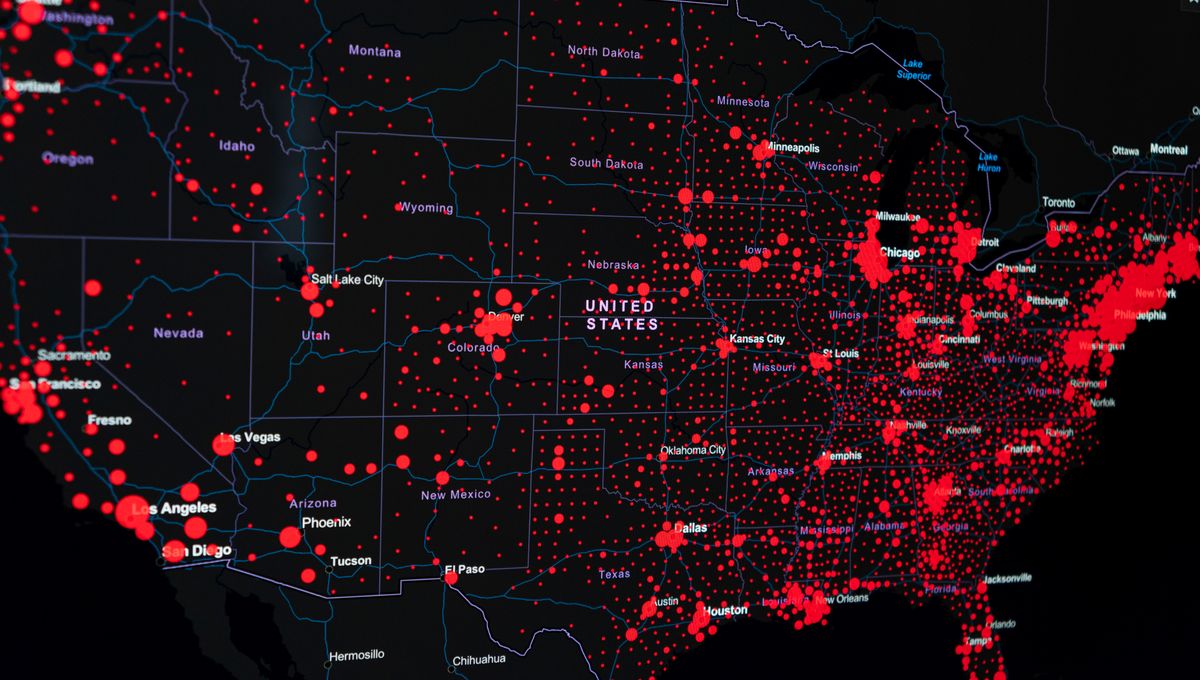
The COVID-19 pandemic and the measures that were put in place to control it had far-reaching consequences for humanity. This once-in-a-generation event affected education, the world economy, and – most obviously – physical and mental health. But there was one projected consequence that didn’t actually come to fruition, according to new analysis.
With lockdowns and stay-at-home orders keeping people across the world from mixing and socializing for many months, experts feared that there could be a negative side-effect for our immune systems. This could, they theorized, cause a “disease rebound” when lockdowns were lifted, whereby we would have seen a boom in other infectious disease. However, a new study has found that the rebound didn’t happen in quite the way people were concerned about.
“Early in the pandemic, there was some concern raised in the scientific community that lockdowns would disrupt the circulation of other diseases, such as influenza, and this would lead to what are called ‘gaps in immunity’,” explained Tobias Brett, a senior research associate at the University of Georgia and lead author of the study, in a statement.
COVID-19 control measures like masking and social distancing didn’t only help people dodge the SARS-CoV-2 virus. Seasonal flu all but disappeared as a public health issue during 2020-21; a report from the European Centre for Disease Prevention and Control found that no European Union/European Economic Area country recorded a single hospitalization or death from flu that season.
As Brett and co-author Pejman Rohani explain in their paper, the idea that such a period of calm could be followed by a storm of infections after these control measures were removed was reasonable, and grounded in established epidemiological theory. There were also some real-world hints of a rebound, such as the “tripledemics” of COVID-19, RSV, and flu that began to be forecast in 2022-23.
To investigate, Brett and Rohani looked at US-wide data for 26 different pathogens in three groups: airborne diseases; sexually transmitted infections (STIs); and environmentally transmitted diseases, such as tick- or foodborne pathogens.
The mode of transmission was found to be a major factor in whether a disease rebounded or not. Airborne diseases were found to be at greatest risk of a post-COVID surge – that includes viruses like flu and bacterial infections like pertussis (whooping cough).
On the flip side, cases of STIs tanked during the pandemic and have remained at lower levels, particularly gonorrhea and chlamydia. “Notifications of those sexually transmitted diseases flatlined, and we don’t know why,” said Brett. “Explanations could include improved treatment practices post-COVID or a greater investment in public health after the COVID pandemic.”
“Another explanation could be changing behavior. It’s definitely a subject for further study.”
Rohani agreed, saying, “More broadly, this study highlights the important unanticipated effects of public health measures targeted at one infectious disease for other diseases. This points to a need to think holistically about the community of infectious diseases.”
For the diseases that did see a rebound effect, this doesn’t seem to have been as bad as people feared. For many diseases, including mumps, pertussis, and invasive Hib, transmission remained below expected levels even in 2021 and 2022, when people were mixing enough to rapidly spread the latest COVID variants and influenza A.
By 2025, Brett and Rohani write, “notifications of the [airborne diseases] largely rebounded to prepandemic levels as expected.” However, in most US states, these notifications “remained at a net deficit compared with counterfactual projections at the start of 2024.”
“It means that the fears of a rebound were valid, but the rebound didn’t cancel out the deficit,” said Brett. “Obviously, there were negative consequences associated with the lockdowns, but in terms of other infectious diseases, the effect wasn’t negative and was, in fact, a net positive.”
The study is published in the journal Science.
Source Link: The Feared Post-COVID “Disease Rebound” Of Rampaging Infections Never Really Happened